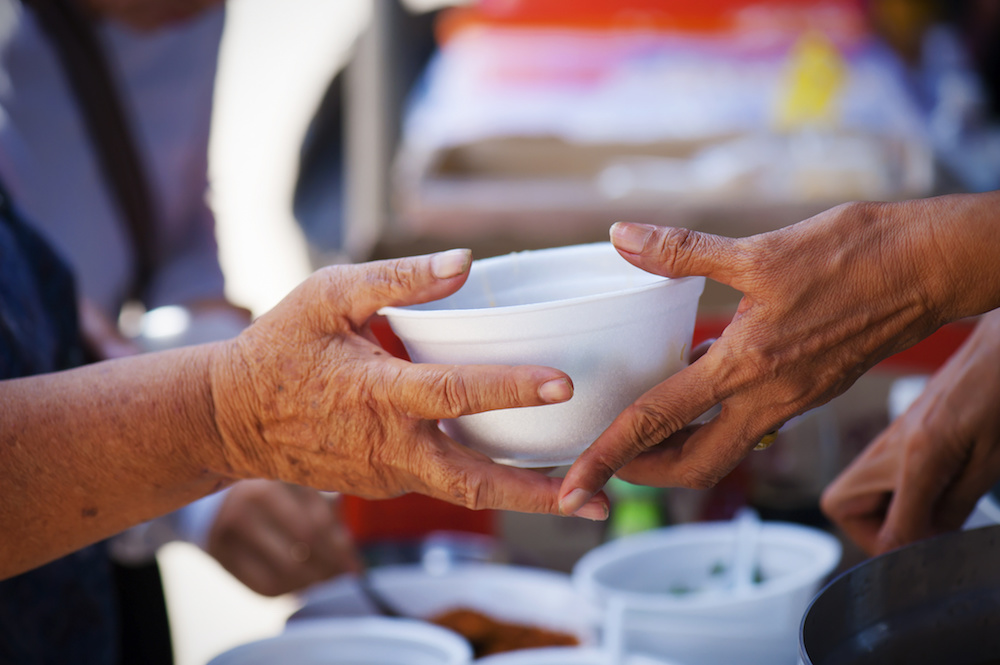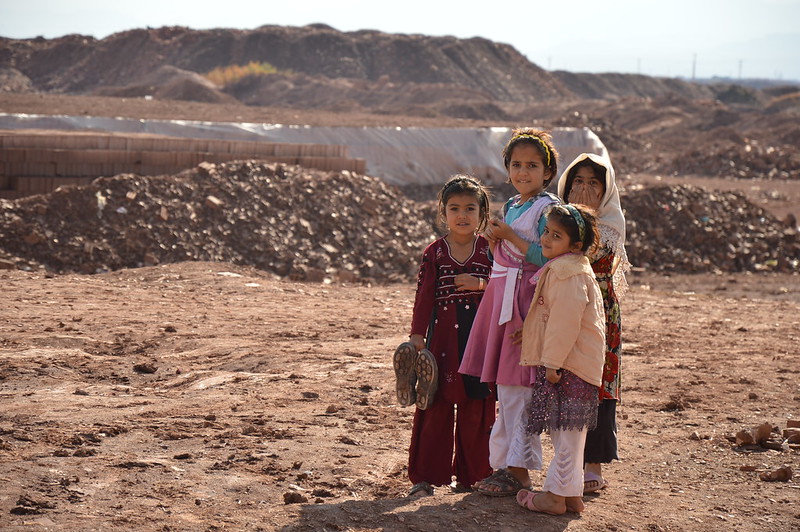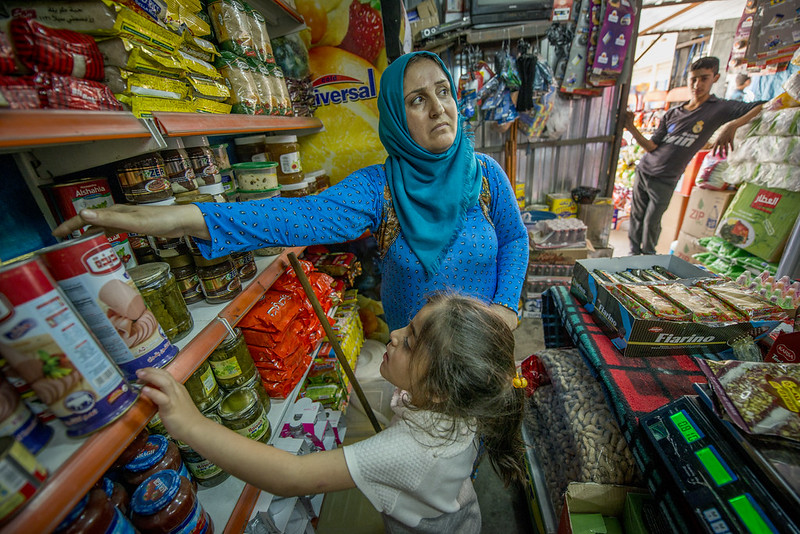Recommended
On 29 June, 31-year-old Carola Rackete docked her boat Sea-Watch 3, an NGO search and rescue (SAR) vessel, at Lampedusa, violating a ban recently imposed by the Italian government. The boat had 53 people on board, rescued two weeks earlier from a drifting dinghy off the Libyan coast. Rackete decided that the ill health of those on board left her no choice but to reach the nearest coast. While docking, Rackete's vessel trapped a police patrol boat against the quay. She was arrested, potentially facing 10 years in jail. Matteo Salvini, Italy's interior minister, accused her of being a “pirate” and an “outlaw,” committing “an act of war.” In the end, the judge ruled that she had conformed with her duty under maritime law to protect the lives of those on board, and Rackete was released.
Rackete is just one of many #WomenHumanitarians, working on the front-line of crises, honored by this year’s World Humanitarian Day. Sadly, her high-profile incident is not isolated. Humanitarian action in the Mediterranean has been increasingly criminalized over the last five years. European Union (EU) politicians and the EU's border force (Frontex) have used verbal attacks and legal actions to undermine NGO SAR operations. Italy has banned any vessels from sailing into its waters without permission and recently hiked sanctions in case of infringement. Earlier this week, another standoff between an NGO and Italian and Maltese authorities left 507 rescued refugees and migrants at sea in two boats when they were denied permission to disembark. After the Italian courts intervened, one boat was granted permission to dock, but as of this writing, the fate of the other remains uncertain. France and Italy have forbidden citizens from giving food, water, and shelter to refugees and migrants. Hungary passed the “Stop Soros” law, criminalizing individuals and NGOs helping migrants claim asylum.
Anti-smuggling laws have also been used to prosecute individuals who provide aid close to the borders. Last year, Sarah Mardini and Sean Binder were arrested on charges of money laundering, people smuggling, and espionage, for providing search, rescue, and relief services on the island of Lesvos, Greece. Mardini is herself a Syrian refugee who had traveled by boat from Turkey to Greece in 2015. When the engine broke down, she and her younger sister helped save others on board by swimming and pulling the boat to Lesvos.
People do not migrate to receive humanitarian assistance. They migrate because of economic and other challenges, including conflict, weak governance, poor education, inadequate infrastructure, and high youth unemployment, make them feel they have little or no other choice.
How has this been allowed to happen? A recent report lays the blame on the EU's 2002 “Facilitators Package,” the main legislation to tackle people-smuggling. This law gives Member States ample discretion to define the crime. Twenty-four out of 28 countries do not consider the intent to gain financial or other material benefit as part of the definition, which is a departure from UN standards. Although some Member States have started to issue humanitarian exemptions, they are usually very narrowly confined to the prevention of imminent deaths.
This phenomenon is far from being confined to Europe. Last May, Scott Warren of church aid group No More Deaths was arrested in Arizona and charged with conspiracy to transport and harbor “illegal aliens.” His attorney claims that Warren was following the group's protocols by keeping two men in a known shelter, following advice from a physician. In January, Natalie Hoffman, Oona Holcomb, Madeline Huse, and Zaachila Orozco-McCormick, volunteers with the same group, were arrested for leaving food and water for migrants walking through a wildlife refuge.
The point of humanitarianism, as codified by the Red Cross and Red Crescent Movement, is “to prevent and alleviate human suffering wherever it may be found. … to protect life and health and to ensure respect for the human being.” EU institutions and members states have committed to this principle when providing humanitarian aid themselves. It is also the primary goal of US humanitarian aid overseas. For humanitarians, this is not an abstract concept but an imperative to act wherever authorities are unable or unwilling to provide basic protection and assistance.
But underlying the growing crackdown is the assumption that humanitarian aid provides a “pull factor” for refugees and migrants. Yet all evidence available, gathered by Médecins Sans Frontières (MSF), shows that there is no link between such aid and increase flows of people. In fact, recent research found that SAR operations in the Mediterranean led to a reduced number of sea arrivals as well as lower mortality rates. People do not migrate to receive humanitarian assistance. They migrate because of economic and other challenges, including conflict, weak governance, poor education, inadequate infrastructure, and high youth unemployment, make them feel they have little or no other choice.
Criminalization might have acted as a deterrent against rescue operations, but the prospect of either being captured by the Libyan coastguards or drowning at sea hasn’t stopped people from trying to cross the Mediterranean: 8,000 have attempted the journey since the start of the year, and 426 have died. Many of those deaths could have been prevented by SAR operations. Other humanitarians like Rackete are not giving up: MSF announced last month that they were resuming SAR operations “as a humanitarian act aimed at saving lives…because people are drowning,” in the words of MSF president Dr Joanne Liu. And fishermen and women continue to comply with their obligation to save lives at sea.
Criminalizing humanitarian aid to refugees and migrants has not only failed, it is also causing unnecessary deaths and suffering. The recent agreement last month by 14 EU member states to a new “solidarity mechanism” to allocate migrants and refugees rescued at sea is a welcome development. Another practical step would be to abolish any law that makes humanitarian aid illegal and to clearly exempt humanitarian aid in existing anti-smuggling legislation. Only then can we return to a mutually beneficial culture of cooperation and coordination between authorities and humanitarian NGOs, with humanity at its core.
Disclaimer
CGD blog posts reflect the views of the authors, drawing on prior research and experience in their areas of expertise. CGD is a nonpartisan, independent organization and does not take institutional positions.
Image credit for social media/web: Óglaigh na hÉireann/Flickr






